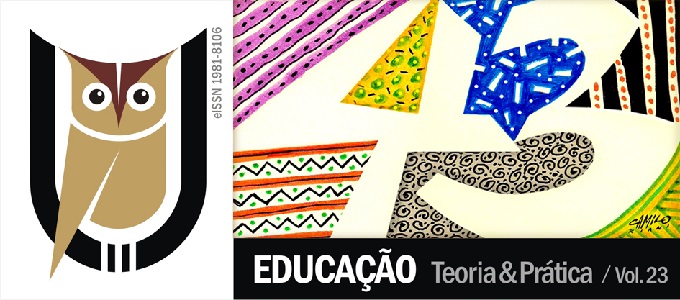Cyborgs and monsters on non-places: aspects of education at a supermodern society
DOI:
https://doi.org/10.18675/1981-8106.vol23.n43.p5-23Keywords:
Supermodernidade, não-lugares, ciborgues, monstrosAbstract
The post-modern society, especially in westernized cultures, has the peculiarity of the presence of some components: capitalism, power systems, technologies for their exercise, schizophrenic behavior, fortification of segregation and repression actions. This is the political, social and cultural background of the School: an institution that seeks the adjustment of individuals to civic life and labor. Based on some ideas of Michel Foucault and the duo consisting of Gilles Deleuze and Felix Guattari the analysis of the instruments of power and the actions contained therein is made. Besides these, we present the definitions of concepts supported Marc Auge, on the characteristics of non-place in supermodernity, a place devoid of experience; Donna Haraway, with its ciborgologia, offering the chance to replace the dichotomy of man versus machine by an ontology human-machine and Jeffrey Jerome Cohen, who in seven theses on the monsters, look back to the monstrosity that surrounds us. It is so identified the element that the School intend to reach: an infant and monstrous cyborg who is required to remain in a non-place.Downloads
Published
How to Cite
Issue
Section
License
Authors who publish in this journal agree to the following terms:
a) Authors assign copyright to the journal, with the work simultaneously licensed under the Creative Commons Attribution License that allows sharing of the work with acknowledgment of authorship and publication in this journal.
b) The policy adopted by the Editorial Committee is to assign copyright only after a period of 30 months from the date of publication of the article. After this time, authors interested in publishing the same text in another work must send a letter to the Editorial Committee requesting the release of the assignment of copyright and wait for a response.
c) This journal provides public access to all its content, since this allows greater visibility and reach of published articles and reviews. For more information on this approach, visit the Public Knowledge Project, a project that developed this system to improve the academic and public quality of research, by distributing OJS as well as other software to support the public access publication system to academic sources. The names and email addresses on this website will be used exclusively for the purposes of the journal and will not be available for other purposes. This journal provides open any other party  This work is licensed under a Creative Commons License
This work is licensed under a Creative Commons License











